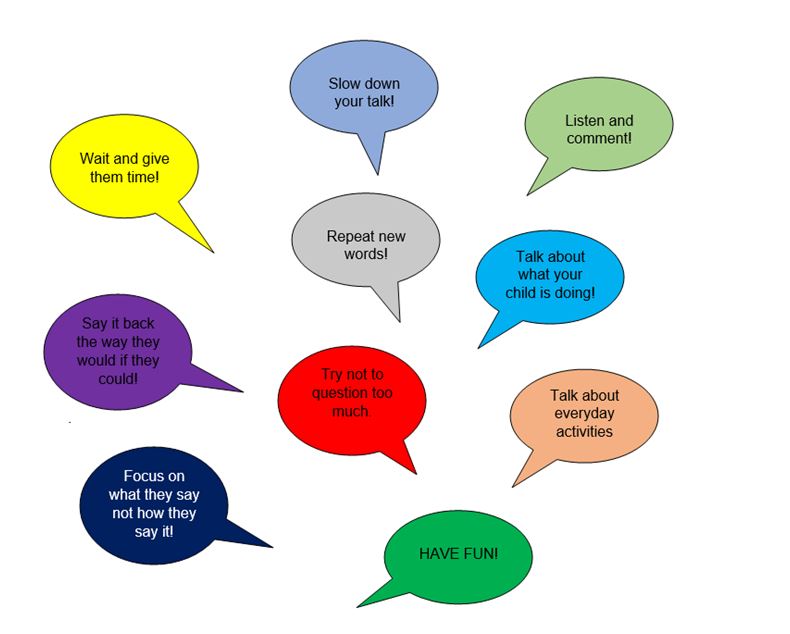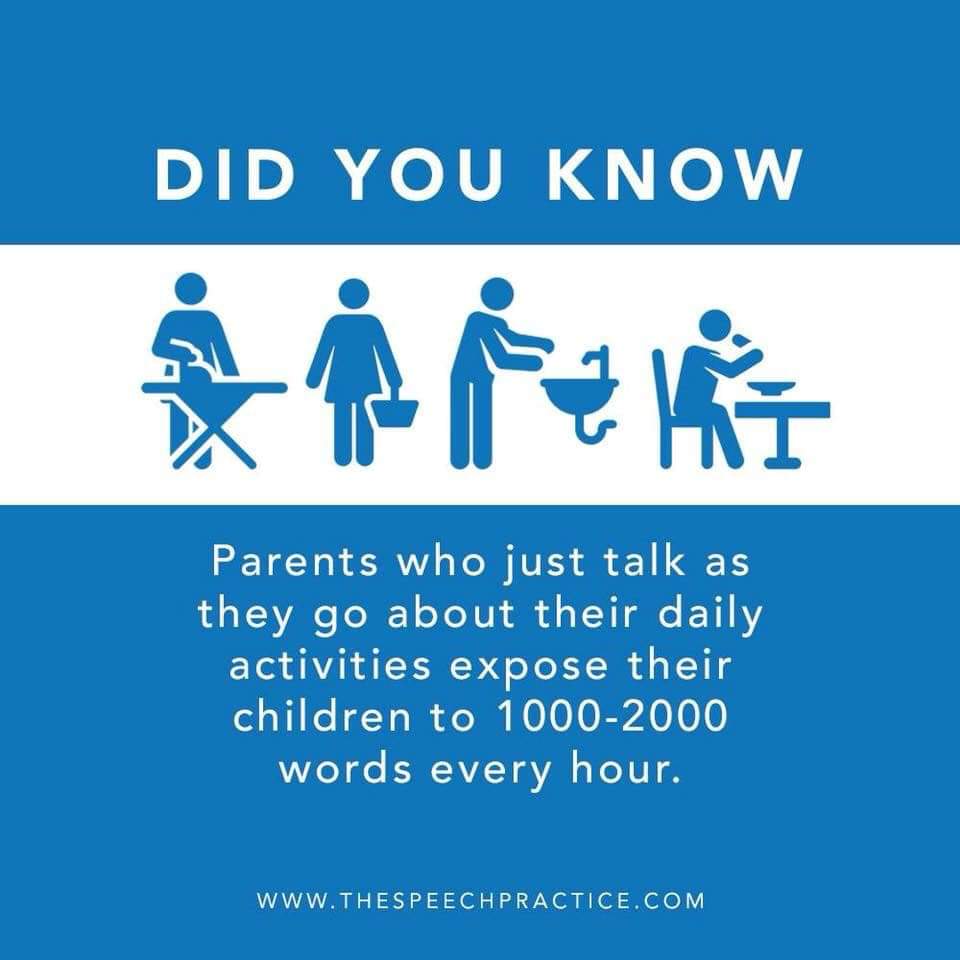In schools, language underpins progress, impacts on attainment throughout primary and secondary years, affects self-esteem and behaviour and plays a huge role in a child’s future life chances. Children don’t learn to talk by accident – they need adults to nurture and support their language and communication. The more adults know and understand about language and how it develops, the easier it is for them to help children improve their talking, understanding and listening skills.(The Communication Trust 2018)
It may seem an obvious thing to say, but one of the best things we can do with young children is to have interesting and enjoyable conversations with them. What this means is that as we go about our activities, whether at home or out and about, we should make a special effort to answer children’s questions, point out things that interest us, involve children in helping and planning what to do next – whether that’s putting out things to play, tidying up, where to visit or whatever. When reading a book with children, make a special effort to read slowly, with lots of fun and expression. Don’t worry about stopping if the children ask you questions. Encourage them to join in with the sounds and rhythms of the story. We should also think carefully about how we speak to children – do we spend too much of the day issuing commands: ‘do this’, ‘do that’? – (Michael Rosen – Children’s Laureate).

“A child who is not at the expected standard in language at the age of five is 11 times less likely to achieve the expected level in maths at age 11.”
– (Source: Department for Education, 2017)

“Children with language difficulties at age five were four times more likely to have reading difficulties in adulthood, three times as likely to have mental health problems, and twice as likely to be unemployed when they reached adulthood.”
(Source: Early Intervention Foundation, 2017)

Over half the teachers asked in a recent survey reported that at least 40% of their pupils lacked the vocabulary needed to access their learning. Worryingly, 69% of primary school teachers and 60% of secondary school teachers believe the gap is increasing.
(OUP – 2018)

Over 70% of children’s lives are spent, not in a setting, but with their family and the wider community. Therefore home and community must be recognised as significant learning environments in the lives of children.
(Effective practice: Parents as Partners – 2007).

1 million children in the UK have speech, language and communication needs SLCN
(I CAN, 2016)

2 children in every class will have clinically significant language difficulties
(Norbury, 2016)

50% of children in some areas start school with delayed language
(I CAN, 2016)

In primary schools, more children have language difficulties than any other special need
(I CAN, 2016)



Further information can be found here:
https://biteable.com/watch/embed/feeding-your-little-one-with-words-2162859

Goodyear Ave, Wolverhampton WV10 9JP
Tel: 01902 558930
Fax:01902 558932
Low Hill Crescent, Wolverhampton WV10 9HS
Tel: 01902 558930
Click below to read our latest report